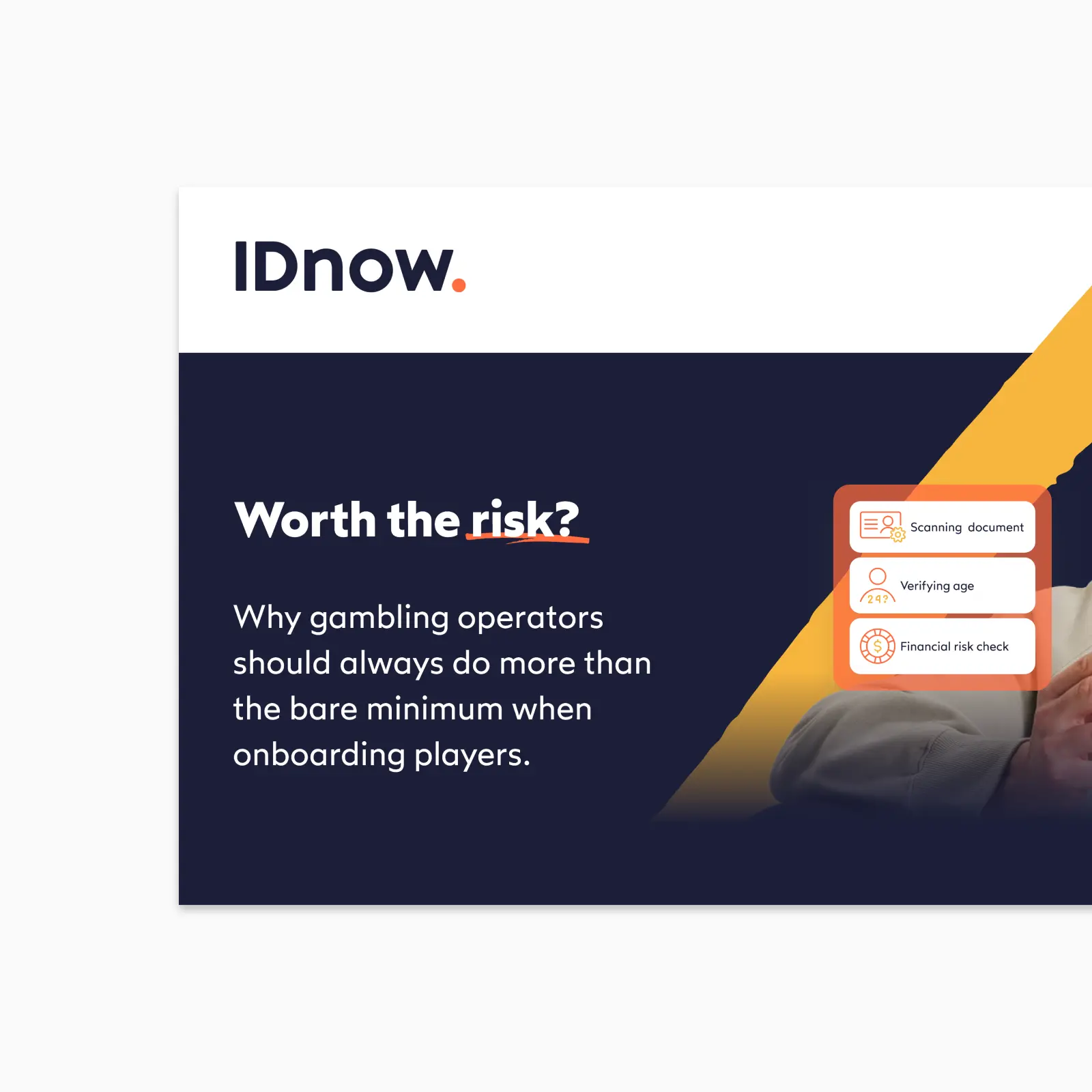So, you’ve decided to enter the Brazilian gaming market? Here’s everything you need to know to remain compliant, fight fraud and offer a frictionless customer experience.
So, it’s finally happened.
After years of ‘Will they, won’t they?’, the Brazilian powers that be have finally managed to agree on how its sports betting and online gaming market should be regulated.
This means that for the first time ever, Brazilian operators can serve Brazilian players, capitalizing on the country’s huge customer base and generating millions of tax revenue in the process. Brazilian players, meanwhile, can now use Brazilian platforms, benefiting from the local language and accessibility options that a local platform offers.
This is great news as before January 1, 2025, players had to either use black market platforms or international ones; neither of which were ideal for providing sufficient consumer protections.
Read more about the dangers of using black market gambling platforms in our blog, ‘Before Brazilian regulation: The dangers of gambling without KYC.’
Of course, as Brazil is such a new market, complete with new regulatory requirements, there are certain compliance challenges operators need to be aware of and important considerations to factor in before launching.
How to offer completely compliant gaming experiences in Brazil.
Being compliant and adhering to regulatory requirements not only protects a business from potential anti-money laundering (AML) and social responsibility fines but also from reputational harm. Each year, hundreds of millions in fines are levied against gaming operators and although there haven’t been any fines against a Brazilian operator yet, it is surely only a matter of time.
In fact, according to Neil Montgomery, a lawyer that operates in Brazil, there is no doubt that Brazilian operators will soon find themselves on the receiving end of fines and even civil cases due to the country’s litigious culture.
“Disgruntled consumers will now have a local door to knock on and use the Brazilian courts to obtain favourable awards. Brazilian courts will look at sports betting and iGaming operators as wealthy companies and an expectation for companies to compensate damages costs to consumers,” said Neil Montgomery, founder of Brazilian law firm, Montgomery & Associados.
Working with an identity verification provider with regulatory expertise and deep knowledge of the market ensures operators can navigate the complexities of Brazilian legislation and regulation with ease; safe in the knowledge they’re offering completely compliant player experiences.
For more information on Brazil’s newly regulated sports betting and online gambling market, read our blog, ‘Everything you need to know about online gambling in Brazil’.
As experienced providers of KYC and identity verification solutions for the gaming industry, IDnow has customers from around the world using IDnow to offer all manner of compliant use cases, from new account openings and age verifications to affordability checks and deposit withdrawals, and everything in-between.
Working with companies operating globally has equipped us with a deep knowledge of different regulatory environments, along with every nuance of their customer onboarding processes, every document or data point required to be processed and every product innovation and functionality that could make the customer experience more inclusive, intuitive and, of course, compliant.
How gambling operators should really be onboarding players.
Most common fraud attacks that gambling operators were subjected to in 2023.
Size of some of the most popular global gambling markets.
The steps required to legally onboard players in nine different countries

7 steps for compliant customer onboarding in Brazil.
A robust customer onboarding experience for a Brazilian gaming platform should restrict fraudsters and underage or ineligible users from opening accounts, while protecting genuine players from fraud and potentially saving the company millions in AML fines.
Here’s how to offer an end-to-end compliant player registration and verification process in seven steps:
- CPF Validation: In Brazil, every citizen is issued a unique Cadastro de Pessoas Físicas (CPF) number, which is used for tax purposes. When cross-checked against the national CPF database, the numbers can be used to verify the identity of players during onboarding.
- Checking against restrictive lists: You know the saying: one rotten Brazilian apple spoils the whole Brazilian barrel (or something like that). Offering a safe and secure gaming experience requires operators to be assured that every single one of their players are entitled to be there, which is why the second important step in the player registration and verification process should be to check applicants’ identities against multiple official restrictive betting lists (lists containing those who could jeopardize results of sporting events, e.g.: athletes or managers).
- PEPs and Sanctions: Like the second step, checking against PEPs and Sanctions lists is essential to assess and effectively mitigate the associated risks of Politically Exposed Persons (PEPs) and sanctioned individuals.
- Document verification: When combined with CPF validation, document verification enables operators to cross-check and verify identity data with other forms. It’s also important to be able to process a variety of different document types, especially in Brazil, where different provinces often have different identity formats and types. The three most common documents that operators should be able to check and verify in Brazil as per the regulation are:
1. Brazilian passport
2. Carteira de Identidade (RG) (National identity card)
3. Carteira Nacional de Habilitacao (National driving license)
- Advanced fraud detection: Fraud detection technology can provide an additional barrier by protecting against various fraud attacks. For example, our seamless advanced fraud detection technology flags whenever a forged document is submitted and can verify whether prospective players are real through liveness checks – all without adversely impacting the user journey. Such checks can help prevent common and emerging fraud types like bonus abuse, identity theft and synthetic identity theft.
- Biometric enrolment: The penultimate step in our player registration and verification process records players’ biometric information, including facial images to facilitate future smoother player authentication.
- Optional manual review: At this stage, the player has registered and verified their identity and are able to start playing. However, for additional security, operators can also choose to perform a manual review of submitted documents and biometrics for additional peace of mind, especially for high-risk individuals.
Customized consistency.
While knowing what needs to be done to create a compliant onboarding process is clearly important, perhaps what is even more important is how it is done and what the user experience of doing it is like. After all, if the customer experience is too complicated then customers will seek out a competitor that does offer an intuitive process or worse still, revert to the black market to platforms that are less concerned with KYC or robust identity verification processes.
Of course, customer abandonment isn’t something specific to the gambling industry. In fact, 90% of companies said they lose customers during the digital onboarding process, with the top three reasons for drop-offs including:
- Too long processes (29%)
- Identity proofing and affirmation pain points (26%)
- Too many manual steps (26%)
At IDnow, we are committed to delivering cutting-edge identity verification solutions that address the specific needs of our customers and their end users.
For example, when we discovered that most Brazilians tended to keep their identity cards in plastic sleeves, we amended our onboarding instructions in the user interface. By including culturally tailored instructions, such as requesting the removal of IDs from plastic sleeves, we ensured users could complete document capture with ease.
It’s important to bear in mind that while compliance and regulatory requirements may differ by country, operators must offer a consistently positive user experience, regardless of the market or the regulatory requirements.
Simply put, the user experience needs to be as seamless as it is secure, which has benefits for both the operator and ultimately the customer.
Integrate seamlessly, with IDnow.
Managing multiple point solutions (e.g. biometrics or documents) across different service providers not only creates inefficiencies and complexities in identity verification processes, but it can also make integration difficult, especially if journeys need to be adapted to regulatory changes or to detect and mitigate new risks.
Our modular and scalable orchestration hub has been designed to reduce technical complexity and enable global operators to balance strict KYC/AML requirements with seamless UX. What’s more, any third-party KYC and compliance service can be easily added to IDnow making it easy to manage in one integration.
Tailored for Brazil’s regulations and localized needs, IDnow simplifies identity verification and compliance with a plug-and-play solution, allowing users to access data, document and biometric verification through a single, unified integration point.
As regulations, data and document types, and ultimately customer requirements differ per region, there is a huge advantage in choosing an identity verification provider that can be tailored to a specific country’s risk and KYC needs.
Roger Redfearn-Tyrzyk, VP of Global Gaming at IDnow.
“Being able to offer a holistic approach to identity verification that can combine compliance services, including IDV, biometric authentication and data verification to meet any country’s requirements will very quickly become a necessity,” Roger added.
Learn more about our Brazil-ready identity verification solutions here.
By

Jody Houton
Senior Content Manager at IDnow
Connect with Jody on LinkedIn



